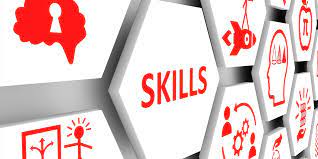Unleashing Creativity: The Art of Creating Innovative Solutions
The Art of Creating: Unleashing Your Creativity
Creating is a fundamental aspect of human nature. From art and music to business and technology, the act of bringing something new into existence is a powerful and transformative process. Whether you’re a seasoned artist or a budding entrepreneur, tapping into your creativity can lead to innovative ideas, solutions, and experiences.
One key to unlocking your creativity is to embrace curiosity. Curiosity fuels exploration and discovery, pushing you to question the status quo and seek new perspectives. By staying open-minded and inquisitive, you can uncover hidden connections and possibilities that inspire fresh ideas.
Another essential element of creating is persistence. Creativity often involves trial and error, experimentation, and refinement. Don’t be discouraged by setbacks or obstacles; instead, view them as opportunities for growth and learning. Keep pushing forward with determination and resilience.
Collaboration can also enhance the creative process. Working with others who bring diverse skills, experiences, and viewpoints to the table can spark innovation and lead to breakthroughs that wouldn’t have been possible alone. Embrace teamwork and leverage the collective wisdom of your peers.
Remember that creating is not limited to traditional artistic pursuits. Innovation can manifest in countless forms – from designing a new product or service to crafting a compelling marketing campaign or solving a complex problem. Approach each challenge with an open mind and a willingness to think outside the box.
In conclusion, creating is a dynamic and enriching endeavour that has the power to shape our world in profound ways. By nurturing your creativity through curiosity, persistence, collaboration, and open-mindedness, you can unleash your full potential as a creator and make a lasting impact on those around you.
7 Essential Tips for Nurturing Your Creative Process
- Start with a clear idea of what you want to create.
- Gather inspiration from various sources such as nature, art, and everyday life.
- Experiment with different techniques and materials to find what works best for you.
- Don’t be afraid to make mistakes; they can lead to unexpected creative outcomes.
- Take breaks when feeling stuck to refresh your mind and gain new perspectives.
- Seek feedback from others to get different viewpoints and improve your work.
- Celebrate your achievements, no matter how small, as each creation is a step forward in your creative journey.
Start with a clear idea of what you want to create.
Starting with a clear idea of what you want to create is essential to the creative process. By defining your goal or vision upfront, you provide yourself with a roadmap that guides your efforts and decisions along the way. A clear idea helps you stay focused, motivated, and on track as you work towards bringing your creation to life. It sets the foundation for effective planning, problem-solving, and execution, ensuring that your final outcome aligns with your initial vision. Clarity at the outset enables you to channel your creativity more purposefully and efficiently, leading to a more successful and satisfying result in the end.
Gather inspiration from various sources such as nature, art, and everyday life.
Drawing inspiration from a diverse range of sources is key to fostering creativity. By immersing oneself in nature’s beauty, exploring art in its many forms, and observing the nuances of everyday life, one can uncover a wealth of ideas and insights. Nature’s patterns and colours, art’s expressions and emotions, and the ordinary moments of daily existence all hold the potential to spark new perspectives and fuel innovative creations. Embracing this multiplicity of influences can ignite a creative spark that transcends boundaries and leads to truly original work.
Experiment with different techniques and materials to find what works best for you.
To enhance your creative process, it is beneficial to experiment with a variety of techniques and materials to discover what resonates most with your style and vision. By exploring different approaches, you can uncover new possibilities, refine your skills, and ultimately find the methods that best suit your creative expression. Embrace this journey of experimentation as a valuable opportunity for growth and self-discovery in your artistic pursuits.
Don’t be afraid to make mistakes; they can lead to unexpected creative outcomes.
Embracing mistakes as part of the creative process is essential for growth and innovation. By allowing room for errors and imperfections, you open yourself up to new possibilities and uncharted territories in your creative journey. Mistakes can serve as valuable lessons, sparking unconventional ideas and pushing you to explore alternative paths that may ultimately result in unexpected and groundbreaking creative outcomes. Remember, creativity thrives on experimentation and resilience, so don’t be afraid to make mistakes – they could be the stepping stones to your next big breakthrough.
Take breaks when feeling stuck to refresh your mind and gain new perspectives.
When faced with a creative block, it is essential to recognise the value of taking breaks to refresh your mind and gain new perspectives. Stepping away from the task at hand allows your brain to recharge and reset, enabling you to return with a fresh outlook and renewed energy. Whether it’s going for a walk, engaging in a different activity, or simply taking a few moments to relax, these breaks can spark inspiration and help you approach the challenge from a different angle. Embrace these pauses as opportunities to rejuvenate your creativity and overcome obstacles with clarity and insight.
Seek feedback from others to get different viewpoints and improve your work.
Seeking feedback from others is a valuable practice that can provide fresh perspectives and insights to enhance your work. By inviting input from diverse sources, you open yourself up to constructive criticism and new ideas that can help refine your creations. Embracing feedback allows you to see your work through different lenses, identify areas for improvement, and ultimately elevate the quality of your output. Whether it’s positive reinforcement or constructive critique, feedback from others can be a catalyst for growth and innovation in your creative endeavours.
Celebrate your achievements, no matter how small, as each creation is a step forward in your creative journey.
It is important to celebrate your achievements, no matter how small, as each creation represents a significant step forward in your creative journey. By acknowledging and appreciating even the smallest successes along the way, you can stay motivated and inspired to continue pushing boundaries and exploring new possibilities. Embracing every accomplishment, no matter how minor, helps build momentum and confidence, propelling you towards greater creativity and innovation in the future.








